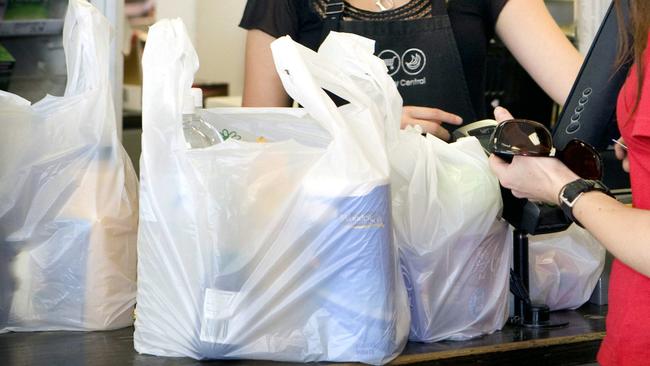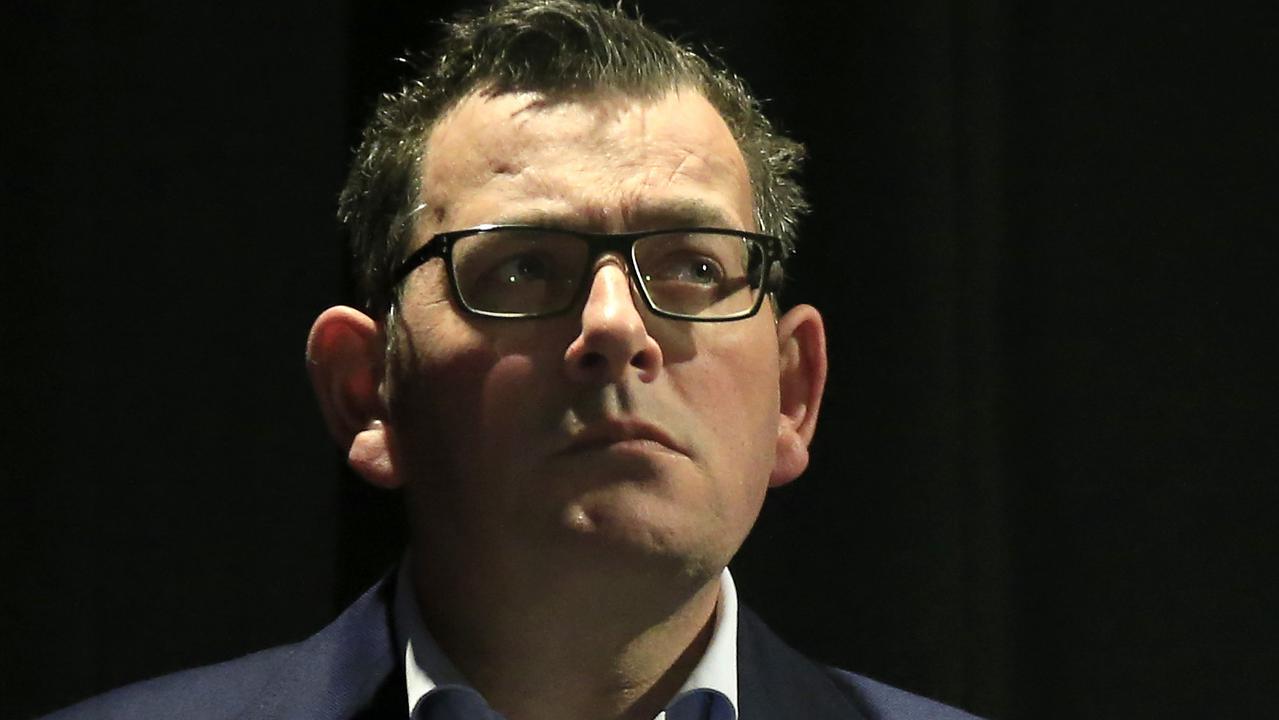Calls to ban the plastic bags carry very little weight
PLASTIC bags are brilliantly designed and useful, yet there’s a push to ban them. But why pick on plastic bags and ignore other packaging, asks Patrick Carlyon?

Patrick Carlyon
Don't miss out on the headlines from Patrick Carlyon. Followed categories will be added to My News.
PLASTIC shopping bags are a benchmark in grand design, the Tim Tams of packaging excellence. They carry beer and dispose of dog mess. They kill the smell of takeaway Chinese in the car and serve to wrap presents for not so special friends.
The plastic shopping bag is one of humanity’s modern marvels: simple, cheap and complete. Why use two at the supermarket when you can take six? Having them around, just in case, makes the day seem a bit easier. Like sugar. And fast food. No wonder governments throughout Australia have long sought to ban them.
The accepted line goes that plastic shopping bags are naughty. International campaigns bamboozle the reader with useless facts. Did you know that enough petroleum goes into each plastic bag’s manufacture to power a car over 11 metres? Does this mean that the contents of the cupboards under my kitchen sink will take me to Sydney and back?
You cannot have too many plastic shopping bags, as opposed to empty plastic water bottles, which breed like rabbits, as if to visually reinforce the silliness of your spending choices. Some people collect stamps. Others of us, a silent army of ordinary Australians, hoard plastic bags, thousands of them, all tinkling and bulges, by stuffing them into every available recess.
There is method here, for the revolution is coming. The end is nigh. They can take our plastic bags but — to borrow from Charlton Heston — only if they prise them from our cold dead hands.
Environment Minister Greg Hunt reckons we churn through seven to eight billion of them a year (plastic bags, that is, not Coalition cabinet ministers or possible tax policies). He spoke last week of “actions to address plastic shopping bags”, as though he was about to write them all very cross letters indeed.
He is meeting state ministers this week to discuss an apparent chorus of disapproval about their very existence. Queensland’s government wants a national ban. South Australia, Tasmania, ACT and Northern Territory already have various bans on types of plastic bags, though not one of these states has controls on politicians who tackle itsy bitsy problems.
None of the politicians, then, has visited a shop in recent years and begged for a plastic bag for the carrying of umpteen items — on the grounds that he or she is not a “freaking octopus” — only to be told that their pleas conflict with the retailer’s new-found desire to save the planet one plastic bag at a time.
Plastic bags also provide cover from claims of thievery should you visit a second store that sells the same goods as the first. That matters, given the unspoken Australian custom (save the forests?) for not volunteering receipts.
Some people carry recyclable bags. Those are designed for the shoulder like women’s handbags. They always go missing when needed. Such bags were intended as a joke that the world took seriously and were probably marketed by a producer from Candid Camera in need of hilarious scenes of shoppers who unwittingly spill fruit.
Those bags stink in general, but especially when they are substituted for plastic bags for fishing trips. Such uses prove a point overlooked in the plastic bag abolition movement: despite the science of their nasty manufacture, plastic bags are often recycled. That’s because they are handy. They freeze food. They keep dry a returned book on a front door step. They’re so great that even Clean Up Australia recognises their worth on its website: “The plastic bag has been popular because of its extraordinary strength and its lightweight properties have kept the cost of production and distribution low while making it versatile for the consumer ... it is now regarded as essential as a vessel for carrying items across much of the world.”
Yet we’ve been weaned off plastic bags these past few years. The case against them was clinched in large part by images of marine life choked or poisoned by plastic. Someone counted: 100,000 whales, turtles and fish killed a year and something like a million birds.
Research speaks of 4.8 to 12.7 million metric tons of plastic entering the ocean a year, which sounds like an awful lot. It’s said that microscopic bits of a single plastic bottle land on every beach in the world. Yet the argument seems flimsier here in Australia. We are indoctrinated from toddlerhood that littering is death to the planet. If the law doesn’t ping you for throwing a wrapper out the car window, your kids will.
In Tasmania, where bans were imposed in 2013, the government offers few alternatives to plastic bags for the lining of bins — except other plastic bags that are not banned. If stuck for ideas, a government website suggests, why not copy whatever your friends have come up with.
Plastic bags get into the waterways through littering and rubbish dumping — illegally, that is, in the same ways that a yoghurt tub might end up in the ocean. Unless garbage trucks deliver to the seaside, plastic bags end up in landfill, along with nappies and takeaway coffee cups.
Will governments ban babies and baristas?
Hunt spoke last week of the best possible outcome for the environment. But what is best for the daily lives of Australians? Must the most boring of routines become more bothersome to protect the environment from the few? Will bans make any difference anyway? Can Hunt demonstrate that the reward outweighs the sacrifice more convincingly, say, than the need for high-powered SUVs on city roads — which are not about to be banned?
If the environment matters most, toys would be packaged in beige canvas boxes. Every road intersection would feature power plugs to charge our cars. The environment does not matter most. Voters’ expectations do. Some of us — no, most of us — adore plastic bags. They remove mess. They reduce the need to think. Voters are weary of governments that boast about fixing problems — when instead they introduce new ones to make our daily lives a bit harder.



